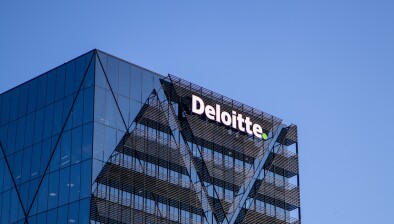Deloitte: Digital transformation is key priority for UK CMOs in 2022

Debbi McLean
Accelerating the move to digital platforms and technologies is the leading priority for Chief Marketing Officers (CMOs) in the UK over the next 12 months, according to Deloitte’s inaugural UK CMO survey.
Almost half (45%) of the 120 CMOs surveyed by Deloitte highlighted digital transformation as one of their leading priorities for the next 12 months. This comes as previous Deloitte Digital research found that one third (33%) of consumers said they did not think online services were good enough.
Other leading priorities for UK CMOs in the year ahead include improving productivity and efficiency (39%) and driving greater revenue (33%). In comparison, just eight per cent plan to focus on retaining their top talent.
Deloitte’s research finds CMOs are prizing analytical skills over creativity within their teams. 31% of CMOs say that their highest-performing team member possesses analytical experience, which accounts for their success. In comparison, just 18% cite creative experience as the key reason for their strongest team member’s success.
Becky Skiles, chief marketing officer in Deloitte Digital, commented: “Creativity will always be at the heart of a marketing team, but analytics play an increasingly critical role. Marketing teams need to be as confident wrangling big data and AI models as they are with creating beautiful creative campaigns - and even more important is linking one to the other. The focus for marketers in 2022 must be to ensure that neither creativity nor analytics is side-lined, whether this is in the roll-out of new campaigns, digital platforms, or products and services. Analytics powered marketing is the key to ensure a seamless, secure and superior customer experience.”
Findings from Deloitte’s UK CMO survey are included in the firm’s Global Marketing Trends report, an annual report highlighting seven trends that will impact the industry in the year ahead.
Trends in Deloitte’s Global Marketing Trends report include:
Meeting customers in a cookieless world
While consumers may appreciate relevant ads, many are concerned about how their personal information, purchase preferences and browsing habits are being used. In response, regulations have tightened, and many web browsers and tech companies are disabling third-party cookies, i.e., becoming cookieless.
Deloitte’s research shows that 81% of British consumers are aware that companies use cookies to help personalise their online experience. However, 52% say they are not comfortable with companies using their data to offer them more relevant products.
Debbi McLean, director in Deloitte Digital, added: “In 2022, we’ll start to see brands rely less on third-party cookies and marketers must start to consider how this will impact their brand and the opportunities it could possibly create. Collecting more first-party data should be a key priority, however this must be done with consideration. Ultimately, as brands’ reliance on cookies decreases, consumer trust should increase. For too long, indiscriminate targeting has been prioritised over creating more genuinely personalised experiences.”
Authentically inclusive marketing
Deloitte research highlights that younger and more diverse demographics notice diverse and inclusive advertising. However, it takes more than diverse advertising to win over customers - it requires a true commitment to diversity, equity and inclusion (DEI).
Deloitte’s research shows that 57% of UK CMOs say that they have met goals in their DEI efforts for brand imagery and messaging, with an additional 9% saying they have made significant progress by exceeding these goals.
Annie-Gallimore, managing director of ACNE London, said: “The past 18-months have held up a mirror to creative agencies across the UK - asking them to seriously consider whether the creative work they are producing is a true and fair reflection of society at-large. Progress has been made on a number of fronts, for instance with the launch of the BRiM framework, which is aimed at improving the representation of Black people in marketing, but CMOs must continue to consider their approach to inclusion across every platform. It is not only a question of the actual content; every new digital platform, marketing brief and campaign must be devised and launched by diverse, inclusive teams.”
Elevating the hybrid experience
Now that brands are more adept at digital delivery, the next challenge is providing the best integrated physical and digital, or hybrid, experiences. Executives are looking to hybrid to innovate, offer more inclusive experiences, and help people connect.
Deloitte’s research shows that 90% of UK CMOs say they will invest more in hybrid experiences over the next 12-months.
Libby Cousins, lead partner for advertising, marketing and commerce at Deloitte Digital, concluded: “Hybrid experiences have opened the door to a number of more inclusive events, empowering people with the choice to connect with brands in a way that suits their lifestyle. The next step will be to ensure that data is collected across online and real-life scenarios, allowing brands to capture customer feedback and improve their understanding of the customer journey in a cohesive way.”
Other trends included in Deloitte’s report are ‘Building the intelligent creative engine’, ‘Designing a human-first data experience’, ‘Supercharging customer service with AI’ and ‘Purpose — a beacon for growth.







